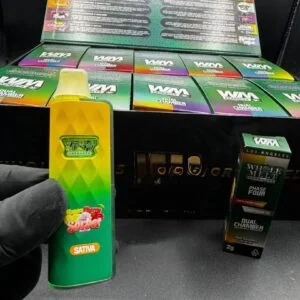Preparing Special Education Students for MCAS: Tips and Strategies
- Crystal Webster
- Feb 26, 2025
- 3 min read
Special Education students face unique challenges when it comes to standardized testing, such as the Massachusetts Comprehensive Assessment System (MCAS). It is essential for educators and parents to work together to provide the necessary support and resources to help these students succeed. In this article, we will explore some tips and strategies for preparing Special Education students for the MCAS exams.
Understanding the MCAS
Before diving into specific tips and strategies, it is crucial to have a basic understanding of the MCAS. The MCAS is a statewide assessment that measures student performance in various subjects, including English Language Arts, Mathematics, and Science. Special Education students are expected to take the MCAS like their peers, but they may require accommodations and modifications to support their individual needs.
Collaborate with the IEP Team
One of the most critical steps in preparing Special Education students for the MCAS is to collaborate with the Individualized Education Program (IEP) team. The IEP team consists of educators, parents, and sometimes the students themselves, who work together to create a customized plan to meet the student's unique needs. By working closely with the IEP team, educators can develop appropriate accommodations and modifications for the student during the MCAS.
Provide Targeted Instruction
Special Education students may require additional instruction and support to succeed on the MCAS. It is essential to provide targeted instruction that focuses on the specific skills and concepts that will be tested on the exam. This may include small group instruction, one-on-one tutoring, or access to assistive technology to help students master the material.
Practice Test Taking Strategies
Like all students, Special Education students can benefit from practicing test-taking strategies to help them navigate the MCAS. Educators can teach students how to manage their time effectively, eliminate obvious wrong answers, and use critical thinking skills to solve problems. By practicing these strategies regularly, students can feel more confident and prepared on test day.
Create a Positive Testing Environment
Creating a positive testing environment is essential for Special Education students to feel comfortable and confident during the MCAS. Educators can make adjustments to the testing location, provide sensory supports, or allow for frequent breaks to help students stay focused and engaged. Additionally, offering positive reinforcement and encouragement can help boost students' morale and motivation.
Leverage Technology
Technology can be a powerful tool for Special Education students preparing for the MCAS. Educators can use educational apps, online resources, and interactive programs to supplement instruction and help students practice essential skills. Additionally, assistive technology devices, such as text-to-speech software or speech-to-text programs, can support students with reading or writing challenges.
Monitor Progress and Adjust Support
Throughout the preparation process, it is essential to monitor Special Education students' progress and adjust support as needed. Educators should regularly assess students' understanding of the material, track their performance on practice tests, and solicit feedback from the students themselves. By identifying areas of improvement and changing strategies accordingly, educators can help students make steady progress towards success on the MCAS.
Conclusion
Preparing Special Education students for the MCAS requires careful planning, collaboration, and tailored support. By working closely with the IEP team, providing targeted instruction, practicing test-taking strategies, creating a positive testing environment, leveraging technology, and monitoring progress, educators can help students feel confident and prepared on test day. With the right support and resources, Special Education students can overcome challenges and demonstrate their knowledge and skills on the MCAS.


Comments